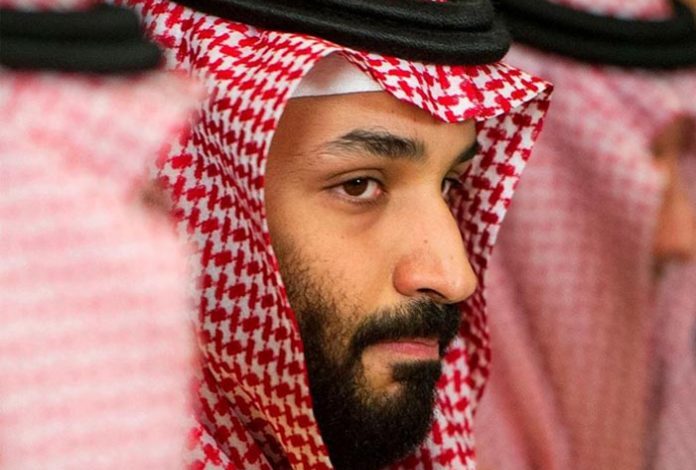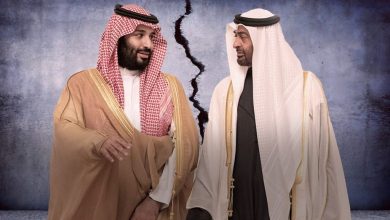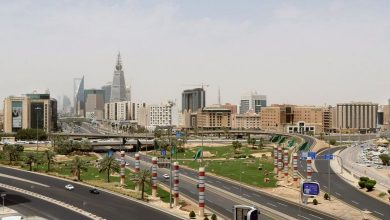International Institute: Mohammed bin Salman, a pariah that world leaders avoid

The Washington Institute for Near East Policy said that Crown Prince Mohammed bin Salman is a pariah that world leaders avoid meeting or appearing with him in any international forums.
In its analysis, the institute indicated that Mohammed bin Salman was absent from the climate change conference in Glasgow and the G-20 summit held in Rome.
He stated that US President Joe Biden was not ready to meet bin Salman. Perhaps some other world leaders were relieved by his absence as well, as the reputation of the Crown Prince is still stained with the blood of the murdered Saudi dissident Jamal Khashoggi.
The analysis stated that the future holds another crisis that refers to the Organization of Petroleum Exporting Countries OPEC crisis.
The Kingdom of Saudi Arabia and some other countries compete with the United States and other industrialized countries over oil prices. The cartel, now known as OPEC Plus due to the loose addition of Russia, Kazakhstan, and a few other countries, prefers that prices remain the same–$80 per barrel.
These countries are increasing production only marginally so that the price does not fall when most people in the United States want more and cheaper oil.
In this context, the parallel OPEC crisis is doubly appropriate because there is talk of opening the “strategic oil reserve” in the United States. That is, the oil stored in salt caves in Louisiana and Texas, in anticipation of any supply problems such as the Arab embargo led by Saudi Arabia in 1973 or Iran’s obstruction of navigation in the Persian Gulf, constitutes a significant source for a large part of the world’s imported oil.
But talk of the SPR is surprising: in the past, policymakers and economists were sceptical about the feasibility of removing oil from the SPR just for what might be just a few months of relatively small challenges.
It is worth noting that the Americans are facing this chaos because of the failure of diplomacy. According to an article published by the Financial Times on November 4, “The White House said that “OPEC Plus” risks threatening the global economic recovery by refusing to increase oil production quickly, and warned that the United States is ready to use “all tools” necessary to reduce oil production fuel prices.”
The newspaper continued, “President Biden blamed Russian and Saudi restrictions on oil, arguing that they are the reason for the increase in oil prices in the United States, which have risen by 60 per cent in the past 12 months.”
It was easy to anticipate this mess. Although many world leaders came to Glasgow for the climate change conference, the absence of Russian President Vladimir Putin and Mohammed bin Salman was notable.
While Putin and Chinese President Xi Jinping were not expected, the absence of Mohammed bin Salman was surprising. The prince was also absent from the G-20 summit that was held in Rome earlier.
It seems that President Biden was not ready to meet him, and some other world leaders may have taken comfort in his absence as well, as Mohammed bin Salman’s reputation is still stained with the blood of the murdered Saudi dissident Jamal Khashoggi.
But whatever the ups and downs of these protocol games may be, they complicate the game of deception that is often necessary to resolve policy disputes. So it makes sense to bet that things will get worse before they get better.
What is different about the renewed OPEC crisis is that it also includes natural gas in addition to oil, which reflects the progress made by natural gas in the energy mix, as well as the simple fact that it is not possible to provide and ship additional supplies of “liquefied natural gas” in all countries around the world, just as simple as increasing oil production.
On the political level, Russia is a major supplier of natural gas supplied by pipelines to Europe, with Moscow playing many different games. According to the Financial Times, the latest is reducing the amount of gas it stores in Europe.
Therefore, one should not expect consuming nations to unite too much beyond the usual range of declarations of their common goals.
Britain hastened to secure four additional shipments of “liquefied natural gas” from Qatar, which is supposed to last until the winter and makes this tiny Gulf state the “supplier of last resort” for gas.
It also seems increasingly to be that “everyone is responsible for themselves”, a phrase befitting British Prime Minister Boris Johnson, although he has not yet said it.





